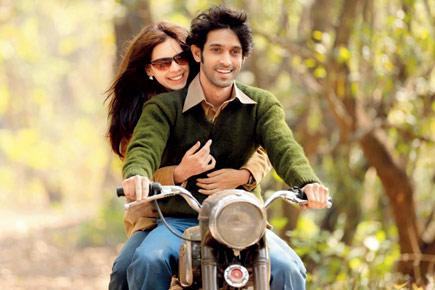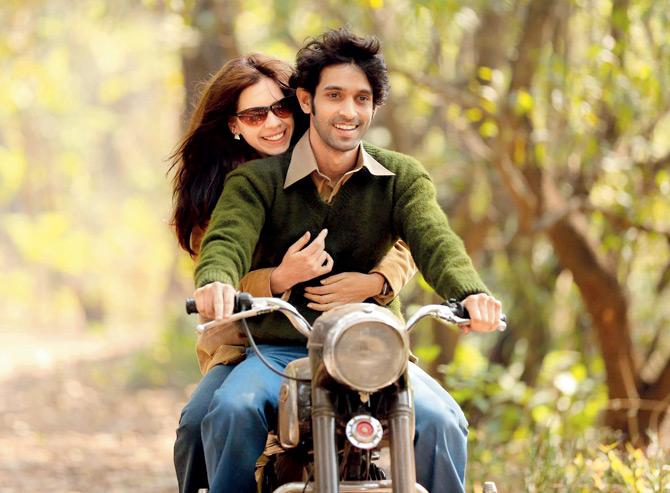One of the great passions of my life is to present Indian films to audiences at home and overseas, and guide them to appreciate our films better


Vikrant Massey and Kalki Koechlin in A Death in the Gunj by Konkona Sen Sharma
ADVERTISEMENT
 One of the great passions of my life is to present Indian films to audiences at home and overseas, and guide them to appreciate our films better. It's always a great learning for me to know how our films are received overseas. I've been in London this last week on the invitation of the British Film Institute (BFI) to introduce the latest season of films I have curated as Guest Curator, India on Film, for BFI. India on Film is a year-long season of Indian and South Asian films that I have curated, that screens from March to December 2017, at BFI Southbank in London. A landmark event, it is the biggest overseas programme of Indian films in the last 15 years. The seasons include Bollywood 2.0, which was on independent tendencies in mainstream cinema; Music in Indian Cinema; the current season is Women Directors Making Waves; there will be a Partition season in August, and a final year-end season. The BFI also has a number of related programmes, including screenings of Shiraz by Franz Osten (1928), an early silent Indo-British-German co-production, that will have live music accompaniment composed by Anoushka Shankar, as well as nearly 300 films shot in India from 1899-1947, that will be available online on BFI Player.
One of the great passions of my life is to present Indian films to audiences at home and overseas, and guide them to appreciate our films better. It's always a great learning for me to know how our films are received overseas. I've been in London this last week on the invitation of the British Film Institute (BFI) to introduce the latest season of films I have curated as Guest Curator, India on Film, for BFI. India on Film is a year-long season of Indian and South Asian films that I have curated, that screens from March to December 2017, at BFI Southbank in London. A landmark event, it is the biggest overseas programme of Indian films in the last 15 years. The seasons include Bollywood 2.0, which was on independent tendencies in mainstream cinema; Music in Indian Cinema; the current season is Women Directors Making Waves; there will be a Partition season in August, and a final year-end season. The BFI also has a number of related programmes, including screenings of Shiraz by Franz Osten (1928), an early silent Indo-British-German co-production, that will have live music accompaniment composed by Anoushka Shankar, as well as nearly 300 films shot in India from 1899-1947, that will be available online on BFI Player.
I had lunch with Robin Baker, Head Curator, BFI, last week, and asked for feedback to India on Film. He said they were quite pleased with the response they had got. Presenting Baahubali 2 the Conclusion knocked it out of the park for the BFI. Apart from a sold-out show, they had a live Facebook feed of an interview of the Baahubali 2 team with director SS Rajamouli, actress Anushka Shetty, music director MM Keeravani and producer Shobu Yarlagadda, that got over 7,00,000 hits on YouTube, while a BBC News live Facebook feed of the interview got nearly 9,00,000 views. For perspective, BFI's Q/A with Baby Driver director Edgar Wright got 39,604 views. So, if a Telugu film got 40 times the response of another of BFI's buzzy offering, we are probably not doing too bad at all.
The trickier part was the Music in Indian cinema, with song and dance. I thought that would have been easy, because I feel song and dance is India's gift to world cinema. But, when I programmed Farah Khan's Om Shanti Om, the BFI got frantic, as they couldn't locate a "singalong print" with karaoke-style lyrics on the print/DCP itself. Indians would be hugely insulted at having to read lyrics on the print in a cinema. So, sigh, we had to just let them sit back and enjoy the superb song and dance of Om Shanti Om, Bajirao Mastani, Jalsaghar, Bombay and Kandukondain Kandukondain. For the current Women Directors Making Waves season in July, again, we had a sold-out show of Konkona Sen Sharma's wonderful debut film as director, A Death in the Gunj. And a nearly sold-out panel discussion on Indian Women Directors in Focus, with Peter Bradshaw, Nasreen Munni Kabir, Sangeeta Datta and Rajinder Dudrah, that I moderated at the BFI Reuben Library.
Thrilling though all this is, it pales in comparison to a screening of Karan Johar's Kabhi Khushi Kabhie Gham that I curated for the Puchon International Fantastic Film Festival in Seoul in 2003. There were 3,500-5,000 people in the audience in a huge open-air maidan. The audience laughed and wept throughout. When I asked some of them why they were so moved, they said, "It is a very Korean story, the story of the two Koreas," before bursting into tears again. I was gobsmacked — and have to hand it to Karan Johar. Take a bow, Karan!
Meenakshi Shedde is South Asia Consultant to the Berlin Film Festival, award-winning critic, curator to festivals worldwide and journalist. Reach her at meenakshishedde@gmail.com
 Subscribe today by clicking the link and stay updated with the latest news!" Click here!
Subscribe today by clicking the link and stay updated with the latest news!" Click here!







